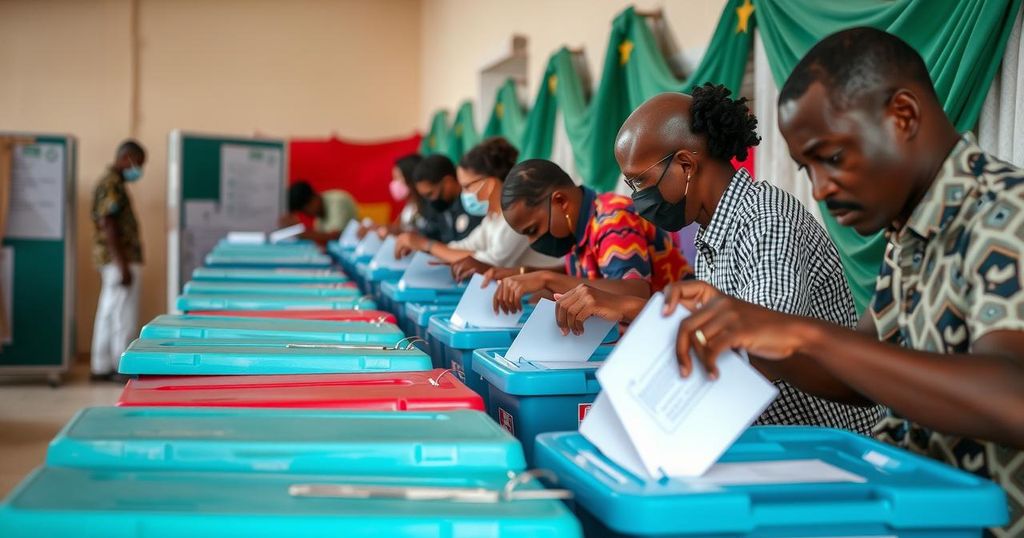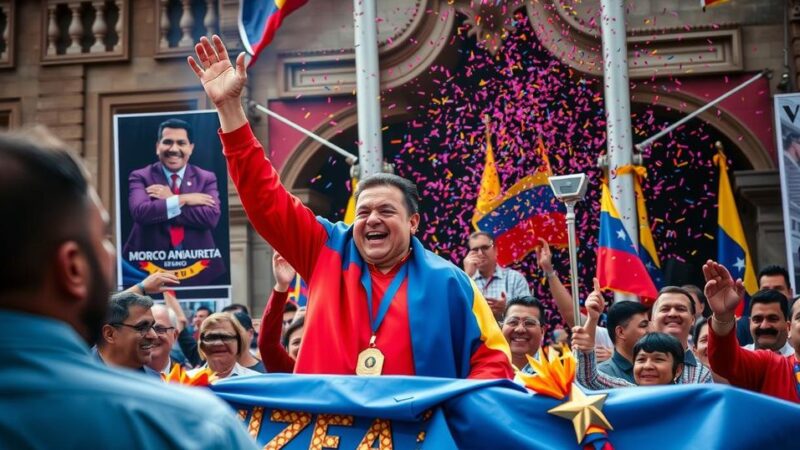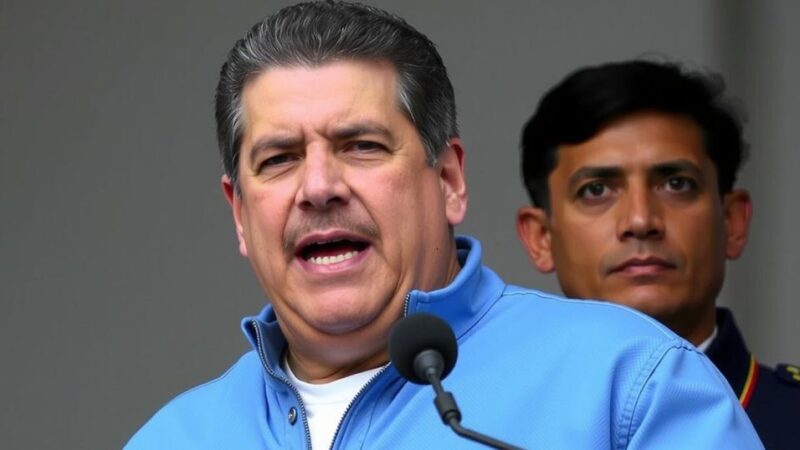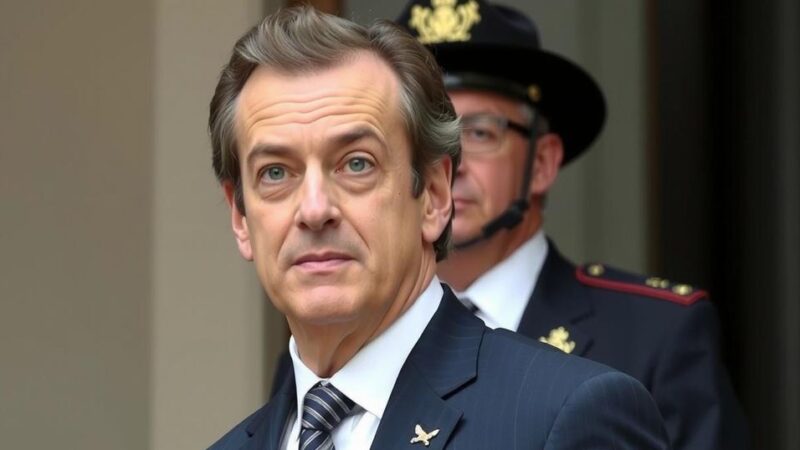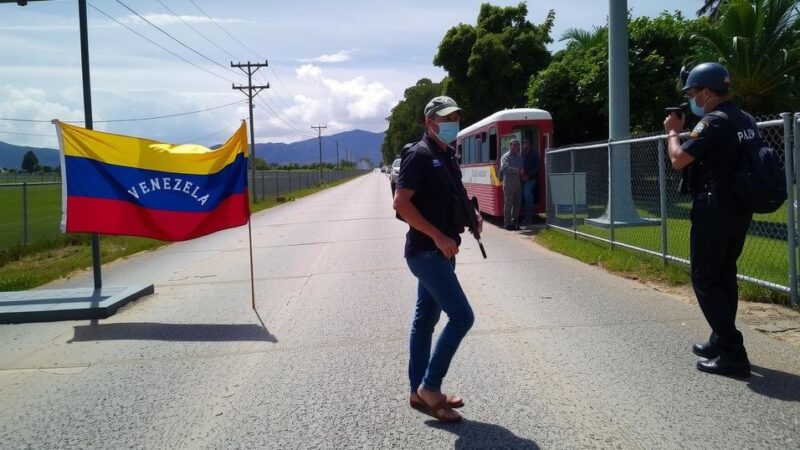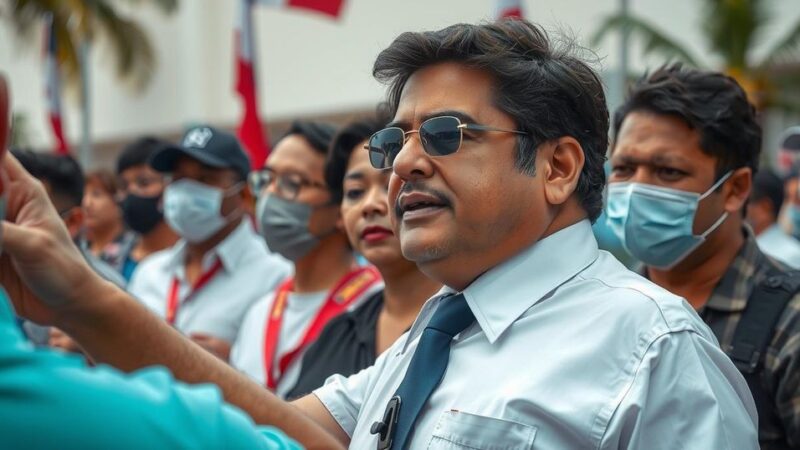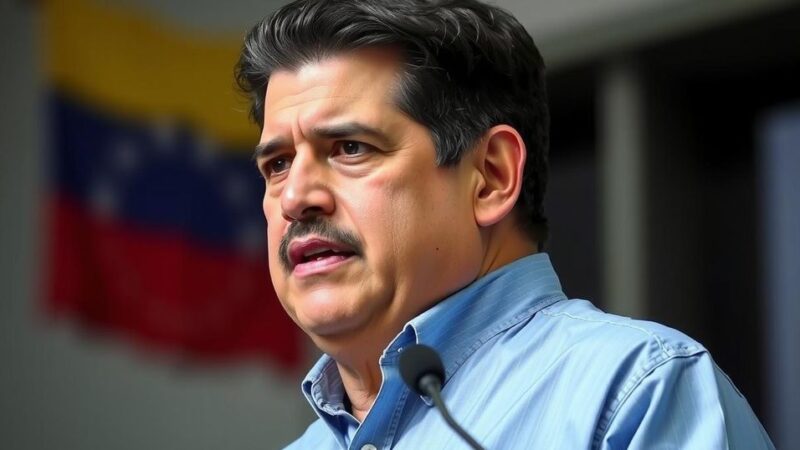Ghanaian elections on December 7, 2024, occur amidst an intense economic crisis, with around 18.7 million registered voters facing a choice between Vice President Mahamudu Bawumia and former President John Dramani Mahama. Polls indicate a slight edge for Mahama, with significant public dissatisfaction toward the current economic conditions. Inflation and illegal mining issues remain prominent concerns for voters, emphasizing the need for decisive leadership to guide recovery efforts.
On December 7, 2024, Ghanaians participated in presidential and legislative elections amid a severe economic crisis, marking a significant moment for democracy in a region facing political instability. Approximately 18.7 million voters confronted a choice between two main candidates: the ruling New Patriotic Party’s candidate, Vice President Mahamudu Bawumia, and the leader of the opposition National Democratic Congress, former President John Dramani Mahama. With inflation soaring and job security dwindling, many citizens expressed skepticism about the potential for substantial change, as reflected in recent polls indicating that 82% felt the nation was on the wrong trajectory.
Ghana, once a symbol of democratic success and economic stability in West Africa, has seen its fortunes plummet due to economic mismanagement, leading to widespread dissatisfaction. Despite a field of 12 candidates, the electoral contest remained primarily between Bawumia and Mahama, as both political factions struggled to present a compelling vision for recovery from the ongoing crisis. Poll projections favored Mahama, suggesting he may reclaim the presidency after his defeat in 2016.
The economic challenges facing Ghana include an alarmingly high inflation rate, which reached 54% by the end of the previous year and has only slightly improved since then. Citizens are particularly concerned about the increase in prices for basic necessities, alongside issues stemming from illegal gold mining that have further complicated the socio-economic landscape. Both candidates made final appeals during their campaign, underscoring the urgency of addressing the nation’s pressing economic woes.
With Ghana’s future hanging in the balance, the atmosphere surrounding the elections was lively yet anxious, reflecting both hope and trepidation for transformative leadership amidst the crisis.
The article discusses the general elections in Ghana held on December 7, 2024, which occurred against the backdrop of the country’s most severe economic crisis in decades. The elections were anticipated to reflect the citizens’ sentiments towards their leadership and the direction of the nation. Ghana, known for its democratic track record in West Africa, faced critical challenges as inflation surged, job opportunities dwindled, and the crisis prompted public discontent. The political contest was largely between Vice President Mahamudu Bawumia of the New Patriotic Party and former President John Dramani Mahama of the National Democratic Congress, both of whom presented their strategies to navigate the troubled economy. This situation represents a pivotal moment for Ghana, as citizens weigh their options in a bid for economic recovery and political stability, while grappling with the implications of political choices made in light of their current economic struggles.
The general elections in Ghana are a critical juncture for the nation’s democracy and economic revival. With citizens facing unprecedented economic hardships, the electoral choices reflect a longing for effective solutions and credible leadership. Mahama’s potential comeback and Bawumia’s assertions of economic stabilization highlight the urgency for innovative and adaptable strategies to navigate Ghana’s challenges. The election results will not only determine the immediate political landscape but also shape the future of Ghana’s economic health and stability in a region threatened by unrest.
Original Source: apnews.com

